Stuck at SecurityRisk.ProxyDNS?
SecurityRisk.ProxyDNS issue having been reported to bother lots of computer users deserves attention. If you receive pop-ups reporting this detection, you should realize that suspicious DNS IPs are going into actions and making troubles on your computer. You should not take lightly this Severe risk - lever attack and it is normal that you may be informed with alerts reporting "System Infected: Adware.DNSUnlocker Activity 2" or "trojan.dnschanger.dnsrst".
Riddled with SecurityRisk.ProxyDNS, you may find that your LAN settings keep going to "Use Automatic Configuration Script" and unwanted proxy.pac such as "hxtp://xn--koa.net/proxy.pac" "wpad.com.gr/proxy.pac" or "hxtp://ɴ.net/proxy.pac" appears in the box. Your web browser may work out of normal for with this proxy slowing down the browser and redirecting your search traffic resumed. This proxydns issue is triggered by win32/proxychanger.tf trojan kind of malware that runs as a proxy and will keep modifying the default HTTP proxy.
If you are in need of help getting rid of SecurityRisk.ProxyDNS? You could try the following tutorials including manual and automatic removal steps.
Plan A: Erase SecurityRisk.ProxyDNS Automatically with SpyHunter
| *** SpyHunter is a spyware detection & removal tool that provides rigorous protection against the latest spyware threats including malware, trojans, rootkits & malicious software. *** This program certified by West Coast Labs’ Checkmark Certification System will walk you through how to protect the computer from malicious threats with limited interaction. |
Tip 1. Download outbound removal tool SpyHunter
(Double click on the download file and follow the prompts to install the program.)
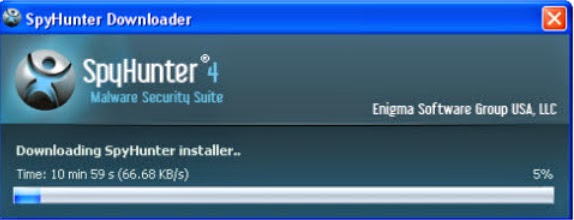
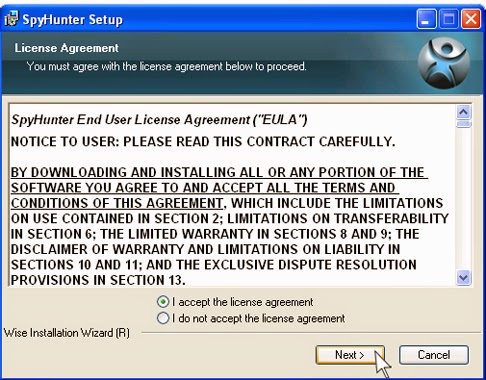
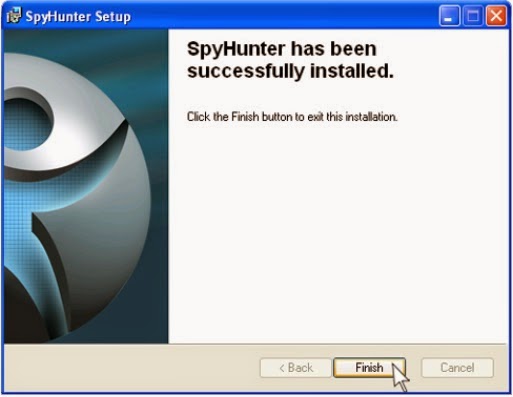.jpg)
Tip 3. Run SpyHunter to scan your PC
After the installation, run SpyHunter and click "Malware Scan" button to start a full or quick scan.
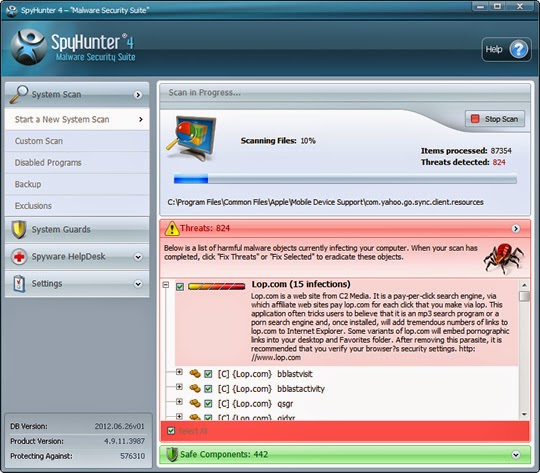
Tip 4. Finally click on the built-in “Fix Threats” to get all detected items deleted.
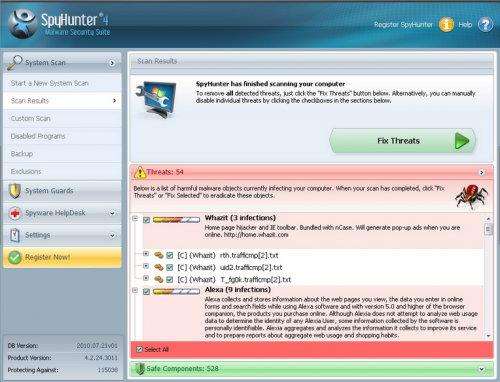
Plan B: Get Rid of SecurityRisk.ProxyDNS Manually
Tip 1. Disable suspicious startup created by this SecurityRisk.ProxyDNS
Click Start menu ; click Run; type "msconfig" in the Run box; click Ok to open the System Configuration Utility; Disable all possible startup items generated.
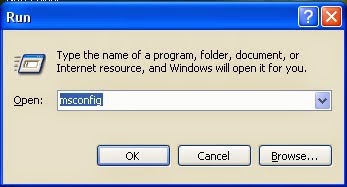
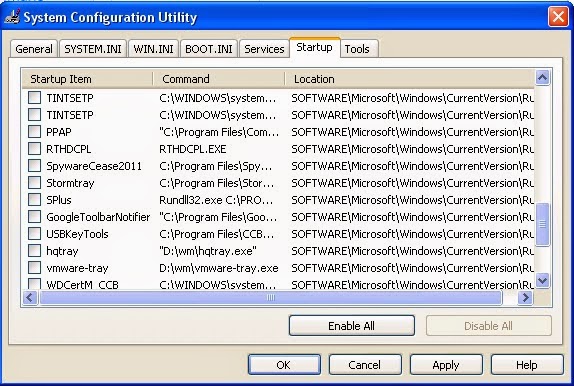
Tip 2. Delete redirect page from Registry Editor
a) Click Start menu and type regedit in Search Programs and files box, and then hit Enter to get Registry Editor Window

find out this proxy crap and others related to delete completely
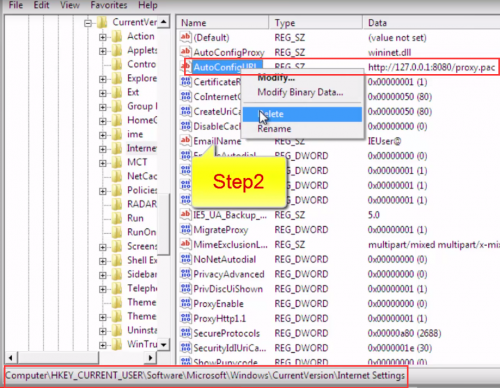
HKLM\Software\Microsoft\Windows\CurrentVersion\RunMicrosoft Internet Acceleration Utility HKCU\Software\Microsoft\Windows\CurrentVersion\Internet SettingsProxyOverride HKCU\Software\Microsoft\Windows\CurrentVersion\InternetSettingsProxyServern.net SecurityRisk.ProxyDNS, 49541, Outbound, C:\Program Files (x86)\Google\Chrome\Application\chrome.exe SecurityRisk.ProxyDNS, 49572, Outbound, C:\Program Files (x86)\Google\Chrome\Application\chrome.exe SecurityRisk.ProxyDNS, 61528, Outbound, C:\Program Files (x86)\Google\Chrome\Application\chrome.exe
Tip 3. Open User Folder from C Drive, and find out malicious ProxyDNS file, delete it
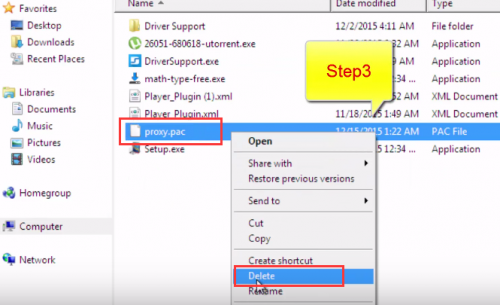
Tip 4. Reset your DNS
a) Go to Control Panel, click View network status and tasks (Under Network and Internet)
b) Click Local Area Connection > Properties > Internet Protocol Version 4 > Properties button
c) Choose Obtain DNS server address automatically
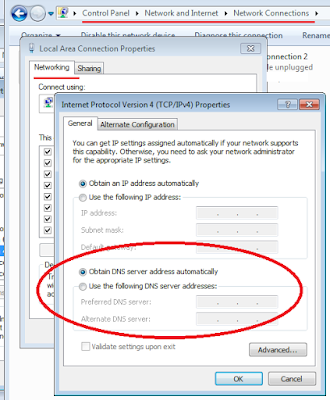
Tip 5. Reset your browsers one by one
Internet Explorer:
a) Click Start, click Run, in the opened window type "inetcpl.cpl".
b) Click "Advanced" tab, then click Reset.

Chrome:
Click the Chrome menu on the browser toolbar and select Settings:
a) Scroll down to the bottom of chrome://settings/ page and click Show advanced settings
b) Scroll down to the bottom once again and click Reset Settings

Mozilla FireFox:
Click on the orange Firefox icon->> choose Help ->>choose Troubleshooting information
a) Click on Reset Firefox. Choose Reset Firefox again to make sure that you want to reset the browser to its initial state.
b) Click Finish button when you get the Import Complete window.
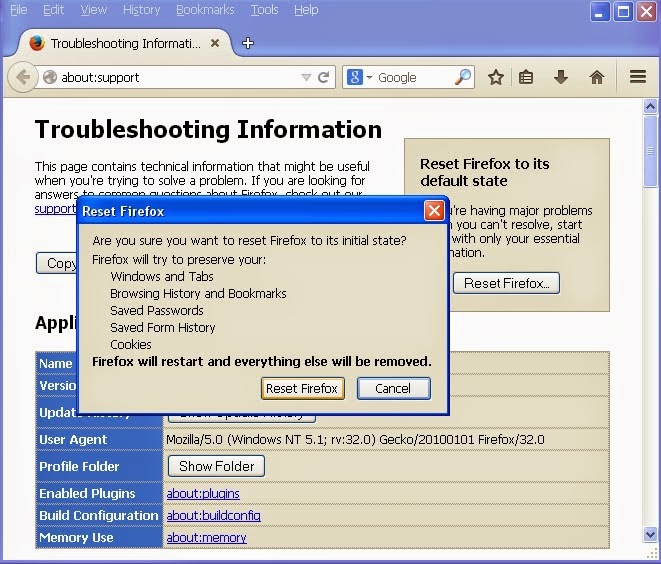
Sincerely Remind:
a) You are not advised to deem lightly anything haunting and triggering alert like SecurityRisk.ProxyDNS. If you fail to finish the manual removal due to any reason, you could think about using the free scanner SpyHunter.
b) The recommended free scanner is for malware detection only. If this security tool detects the threats and you need its automatic removal function, you could consider to activate this security tool to purge your computer efficiently.


No comments:
Post a Comment